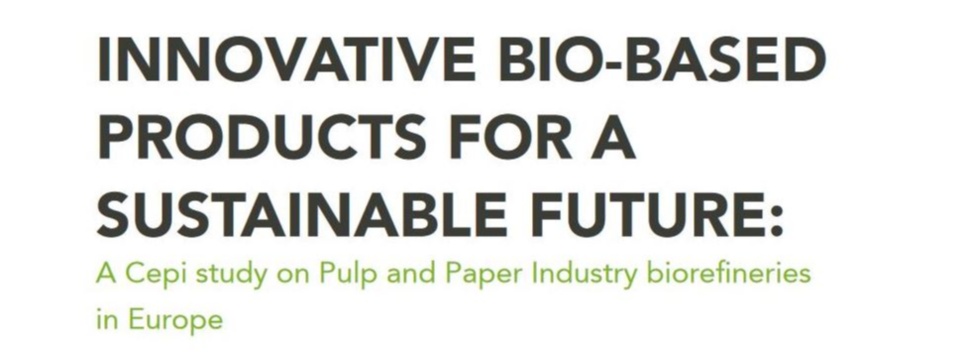New Cepi study on pulp & paper industry biorefineries in Europe
News General news
Lately Cepi presented the first Europe-wide study about pulp and paper industry biorefineries with a dedicated webinar attended by close to 100 participants from industry and press.

The study carried out by NC Partnering identified 139 biorefineries spread throughout Europe, with the biggest number of them located in Austria, Finland, France, Germany and Sweden.
These biorefineries bring to the market new bio-based products for a myriad of industrial value chains such as aviation, civil construction, printing and publishing, packaging, food, automotive & batteries, cosmetics, personal hygiene, electronics, pharmaceuticals & medical applications, furniture, chemicals, textile, and energy.
The most common bio-based products are man-made fibres, biodiesel and bio-naphta, lignosulphonate and tall oil products.
The purpose of this study is also to identify the value of these emerging bio-based products. The turnover generated is close to €2.7 billion, which corresponds to almost 3% of European pulp and paper industry sector turnover as a whole. Based on investment plans and R&D programs, we expect this share to grow in the future.
The pulp & paper industry has the ambition to become the European hub for the bio-based economy, integrating wood fibre, bio-based products and novel recycling.
The key will also be to use the entire potential of raw materials and by-streams of the forest-based sector – which also means paper for recycling – for a broad range of high added value bio-based products.
“The EU Green Deal and the 2050 climate neutrality target require an ambitious shift in the way we produce and consume in Europe. Bio-based products offer solutions to many value chains, also reinforcing the strategic autonomy of Europe by supporting Made in Europe businesses based on raw materials principally sourced in Europe.” commented Jori Ringman, Cepi Director General.
Thanks to their immediate climate mitigation effect, bio-based products and the bioeconomy play an essential role in achieving the European Green Deal objectives such as climate neutrality (see Cepi study on the climate effect of EU Forest-based industries).
EU regulation and the EU industrial policy can support industry transformation by creating the appropriate investment conditions for the European bioeconomy to thrive.










